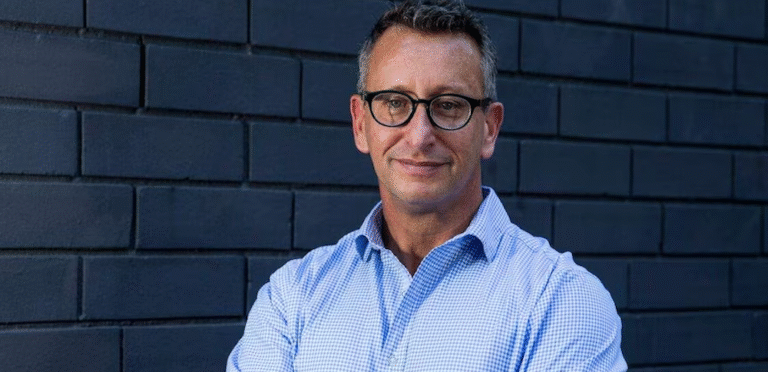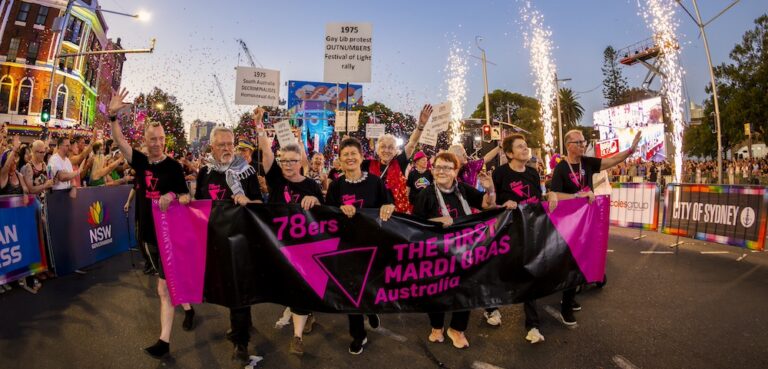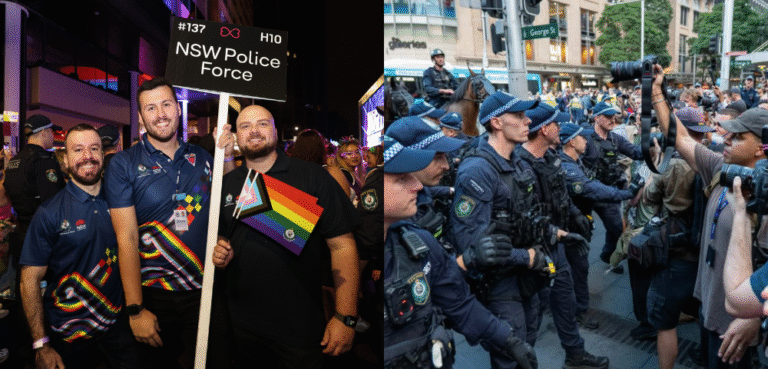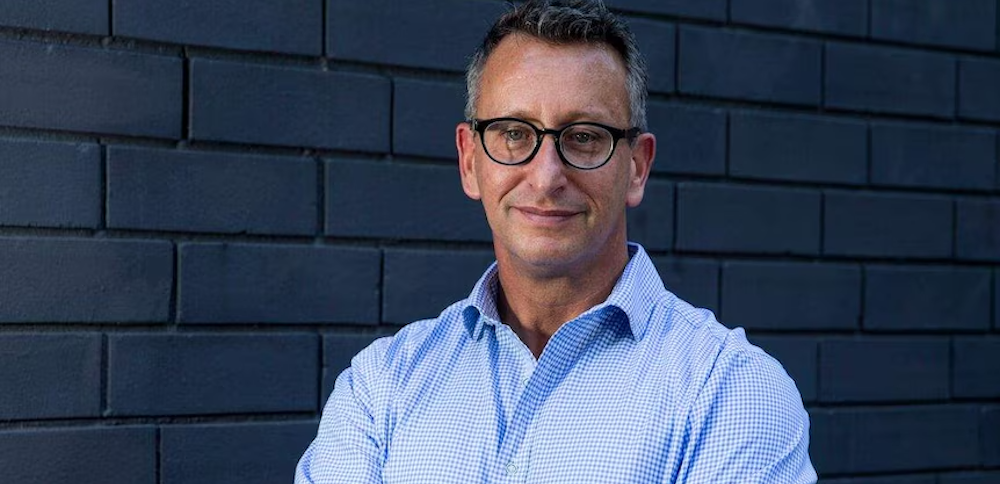
Walking Tall
Walking On Water was one of a raft of movies commissioned for this year’s Adelaide Festival. They all had a theme of reconciliation, though Ayres’ film has the least tenuous connection to that idea. Ayres, of course, is well-known in both the gay and mainstream community for television and film scripts, fiction and, recently, a play and for directing a number of documentaries. This film marks his debut as a feature film director. This time he has not even written the script.
In fact, Ayres was working as an editor on the film’s script by Roger Monk before he came on as director. The film’s original title was Live And Die but it was ditched because, Ayres tells me, it sounded too much like a James Bond movie. He denies there is any metaphysical intent in the title. We liked the irony of it, because you can’t walk on water. It’s about a whole bunch of people floundering around.
I ask the stupidly obvious question of the first-time feature director. It was terrifying, Ayres says simply. Even for such a low- budget film, there are such big expenses. Everything is so intense. The film’s budget of $A1.5m is obviously tiny by Hollywood standards. It was a huge learning curve, he adds and says he’ll do it again.
Although the film is set in Sydney, the budget and a 25-day shoot did not allow for flashy locations. The house used in the film is actually in Vaucluse though it is supposed to be Maroubra. I wanted this to be the Sydney all of us inhabit, he says, where we’re more likely to go to Phoenix than to Arq. I then ask him if he was aiming for the slightly washed-out look that gives the film a moody edge. He laughs. It just rained a lot.
The film’s casting was via the conventional audition process but this provided Ayres with some of Australia’s best, including Vince Colosimo, who had not yet been seen in his much-lauded role in Lantana. He’s a beautifully sensitive actor, says Ayres. A welcome actor was under-used veteran, Judi Farr. It was a fantastic audition. She’s a very dignified presence on screen.
Walking On Water has already gained two awards from the Berlin Film Festival, the Siegessaule Readers’ Jury Prize and the Teddy Award for best feature which has gay or queer themes. Ayres says he was pleasantly surprised when the German audiences laughed in the right places.
Ayres, who was born in Macau but has lived in Australia most of his life, is known for a body of work which refers to his Chinese or his gay identity, an expectation he is outpacing. Indeed, his next project is a play commissioned for Melbourne’s Playbox theatre, The Fat Boy, which I had already seen workshopped earlier in the year in Canberra. It deals with marginalisation and acceptance in a different way. I recall its dark campy humour and pathos and a riveting lead performance by Matthew Whittet as the thinnest yet most convincing fat boy. I wanted to create a character who was fat and effeminate, desperate but unashamed of who he is, says Ayres and adds, ironically, I’ve reached a point where I’d written -˜gay’ and -˜Chinese’. Now I’m writing -˜fat’.
And Walking On Water’s concerns are universal, rather than concentrating on identity, an intentional move for Ayres. As he says, When it comes to the big questions like the loss of a best friend, sexual identity isn’t the key issue.
Â
WALKING ON WATER
Director: Tony Ayres
HHHH
Â
A constant theme for writer and director, Tony Ayres, has been grief and death and this film, his first feature debut, is another variation of this. But the key to this film really is friendship and the expectations of friendship, and of betrayals among the living. This is very much a character-based movie, heavy on atmosphere and strong with performances. And many doses of black humour.
It isn’t giving anything away to note that the film begins with a death, a very prolonged and ultimately problematic death. Gavin (David Bonney) is dying from AIDS. His friends and family gather round the death-bed, including his long-time friends, Charlie (Vince Colosimo), a gay man, and the steely Anna (Maria Theodorakis), who has been organising the end with Gavin. Finally, Gavin is given the supposedly lethal dose of morphine but, despite this, he remains alive -“ just. Charlie panics when he sees his friend still barely breathing and suffocates him with a plastic bag. It is not the dignified death Gavin and the super-organised Anna had planned.
This long opening is raw, nervy and sometimes almost too hard to watch but remains compelling through the interplay between characters as the reverberations begin which will be felt and enacted but not spoken of directly until the end of the film.
Walking On Water is an intense emotional journey through guilt, resentment, grief and denial, and all the things people do to try and get over it -“ drugs and excess partying, frantic sex, a lot of alcohol, and none of it exactly joyful. Although some of the central characters are gay, this isn’t a gay film as such. A whole range of sexualities and lifestyles are represented and it is not always immediately clear what the relationships are between various characters. It is very much life in all its messy detail.
Neither does the film tell us how to think about issues such as euthanasia or counsel us on facing up to reality. It unfolds as the characters fall apart and regather in front of us. They are not all likeable but their complexity makes them real and haunting. One of the stand-out performances is from veteran actor, Judi Farr, who takes her character into a much darker place than your average Australian mother figure. But Colosimo and Theodorakis are the centrepieces and Colosimo, in particular, is notable for his compelling and intense performance while Theodorakis is just a bit mannered in her coolness and her character tends to the one-dimensional.
Ayres has set the film in Sydney but it’s a washed-out Sydney (indeed, walking on and through water), rinsed of its glamour, a big but ordinary place where people cope, or don’t.
Ayres’ film is truthful, tough and intimate. It may be a little slow for some tastes but has plenty of inner emotional drive to keep you there up to and after the closing credits.










